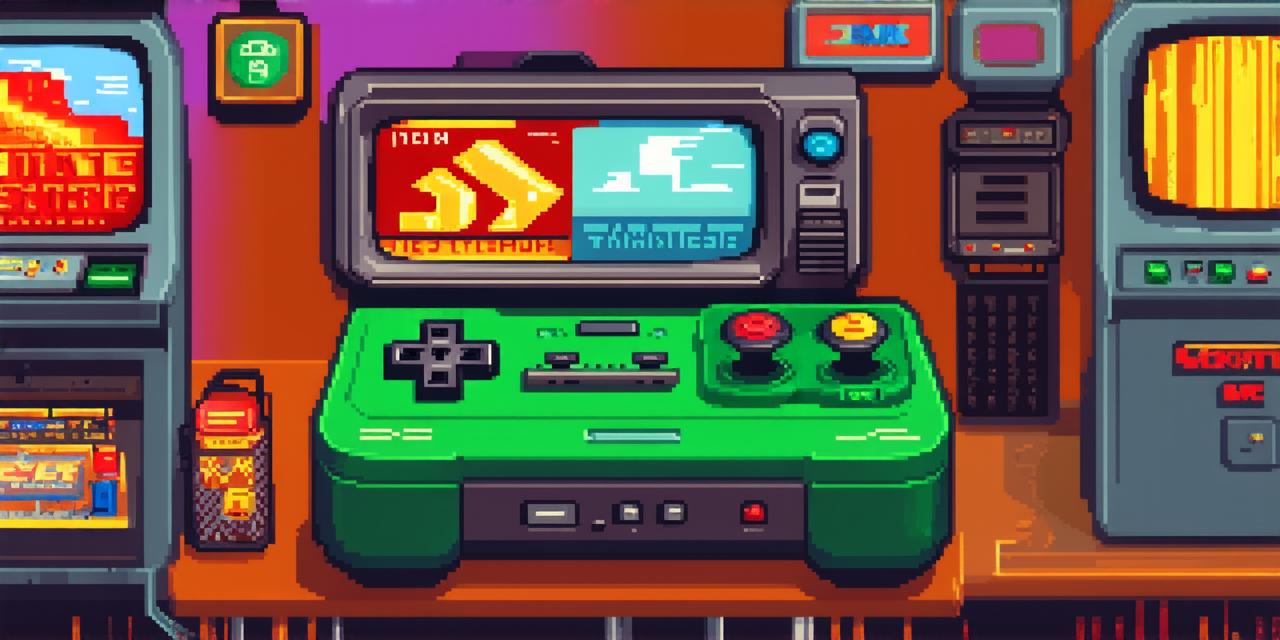Introduction:
Video game design is a highly competitive field that requires a unique set of skills and knowledge. Many people wonder what kind of education is required to become a successful video game designer. In this article, we will explore the different types of education available to aspiring game designers and how they can help you succeed in this industry.
The Role of Education in Video Game Design:
Education plays an important role in shaping the skills and knowledge needed for a career in video game design. While there are many self-taught designers who have achieved success, formal education can provide valuable training and resources that can help you stand out from the competition.
There are several types of education available to aspiring video game designers, including:
-
Bachelor’s Degree in Game Design or related field:
-
Master’s Degree in Game Design:
-
Bootcamps and Online Courses:
-
Self-Guided Learning:
1. Bachelor’s Degree in Game Design or related field:
A bachelor’s degree in game design or a related field such as computer science, art, or music can provide students with a solid foundation in the technical and creative aspects of game design. These programs typically include courses on programming, art, animation, audio production, and game theory. A bachelor’s degree can also help you build a network of contacts within the industry and gain access to internships and job opportunities.
2. Master’s Degree in Game Design:
A master’s degree in game design is a more advanced level of education that provides students with specialized training in areas such as game development, programming, and interactive storytelling. These programs typically require a bachelor’s degree in game design or a related field as well as additional coursework and research. A master’s degree can help you gain expertise in a specific area of game design and prepare you for leadership roles within the industry.
3. Bootcamps and Online Courses:
There are also many bootcamps and online courses that offer training in game design. These programs can be a great option for people who want to learn on their own schedule or don’t have access to traditional educational institutions. However, it’s important to do your research and choose a program that is reputable and provides comprehensive training.
4. Self-Guided Learning:
Self-guided learning is another option for aspiring game designers. This can include reading books, watching tutorials, and experimenting with different game development tools and software. While self-guided learning can be effective, it’s important to supplement your education with formal training and networking opportunities to gain the skills and knowledge needed for success in this industry.
Case Studies:
To illustrate the importance of education in video game design, let’s look at a few real-life examples:
1. Shigeru Miyamoto, Creator of Super Mario:
Shigeru Miyamoto is one of the most successful video game designers of all time. While he did not have a formal education in game design, he was able to create some of the most iconic games in history, including Super Mario and The Legend of Zelda. However, Miyamoto’s success can be attributed to his natural creativity and ability to learn from his mistakes.
2. Clifford Stern, Creator of Minecraft:
Clifford Stern is another successful game designer who did not have a formal education in game design. He created the popular sandbox game Minecraft while working as a teacher at an alternative school in Sweden. However, Stern’s success can be attributed to his ability to combine his technical and creative skills and create a game that appealed to a wide range of players.
3. David Hellyard, Creator of Ultima:
David Hellyard is a graduate of the University of Victoria with a degree in computer science. He went on to create one of the first massively multiplayer online games, Ultima Online. While Hellyard’s success can be attributed to his technical skills and ability to innovate within the industry, his formal education provided him with the foundation he needed to succeed.
FAQs:
1. What kind of degree is required to become a video game designer?
While there is no specific degree required to become a video game designer, many aspiring designers pursue degrees in game design or related fields such as computer science, art, or music.
2. Can I become a successful video game designer without formal education?
It’s possible to become a successful video game designer without formal education, but it can be more challenging. Self-guided learning and networking opportunities are important for success in this industry.
3. What skills do I need to become a video game designer?
Skills needed to become a video game designer include technical skills such as programming and game development, as well as creative skills such as art, animation, and storytelling.
Summary:

In conclusion, education plays an important role in shaping the skills and knowledge needed for a career in video game design. While there are many self-taught designers who have achieved success, formal education can provide valuable training and resources that can help you stand out from the competition. Whether you choose to pursue a bachelor’s or master’s degree, bootcamp or online course, or self-guided learning, it’s important to continue learning and growing as a designer throughout your career. As Shigeru Miyamoto once said, “The most important thing is to try and inspire people so that they can be great in whatever they want to do.



